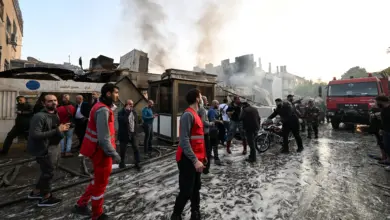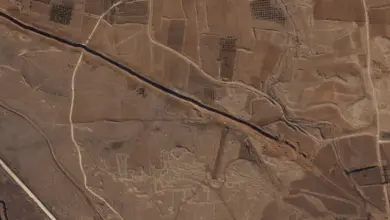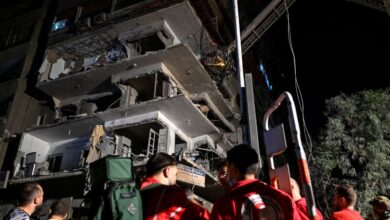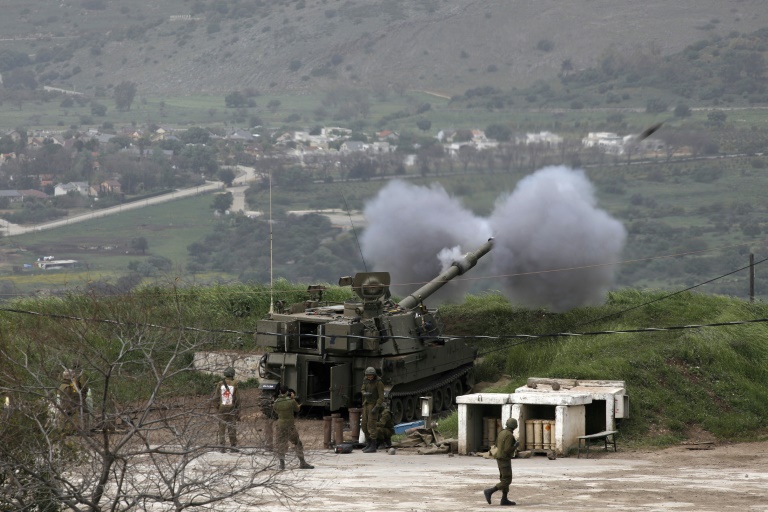Beirut — More than 5000 anti-government protesters in Syria took over the main square of the country's third-largest city Monday, vowing to occupy the site until President Bashar Assad is ousted and defying authorities who warn they will not be forced into reforms.
The Egypt-style standoff in the central city of Homs followed funeral processions by more than 10,000 mourners for some of those killed in clashes Sunday that a rights group said left at least 12 people dead. It also brought a high-stakes challenge to security forces over whether to risk more bloodshed — and international backlash — by trying to clear the square.
In the past month, Syrian security forces in uniforms and plainclothes have launched a deadly crackdown on demonstrations, killing at least 200 people, according to human rights groups. Many Syrians also say pro-government thugs — known as Shabiha — have terrorized neighborhoods with tactics such as opening fire into the air.
In response, the government has blamed armed gangs seeking to stir up unrest for many of the killings.
Syrian Foreign Minister Walid al-Moallem was quoted by the state-run news agency SANA as telling foreign ambassadors Monday that reforms are a "national need" but they cannot be forced through "violence, weapons, sabotage and road closures."
In a strong warning, al-Moallem said authorities are facing pressures to restore "security and order" and said it could take all "suitable measures" if demonstrations persist. On Friday, security forces blocked attempts to hold a similar sit-in in the capital Damascus.
Earlier in the day, at least six coffins were carried by the massive funeral procession in Homs, about 160km north of Damascus, said two witnesses. Security forces stayed away from the mourners in an apparent move to avoid confrontation, said the witnesses, who spoke on condition of anonymity for fear of government reprisals.
The witnesses' accounts could not be independently confirmed because Syria has placed tight restrictions on media outlets and expelled foreign journalists.
After the funeral, thousands of people marched to Homs' main Sa'a Jadida Square, or the New Clock Square, where they chanted "people want to bring down the regime" and "peaceful, peaceful," the witnesses said.
As protesters gathered, security personnel arrived in the area. Three tanker trucks, usually used by authorities to spray protesters with water, were also parked nearby.
"A sit-in until the regime is brought down," the protesters chanted.
Witnesses said the protesters are planning to set up tents and some residents donated water and food.
Also Monday, a group of Syrian students said in a statement posted on Facebook they will not attend classes for three days starting Tuesday to protests the recent deaths and last week's attack by security forces at Damascus University, where one student was killed.
In the northern city of Banias, about 300 children released balloons with slogans calling on Assad to leave power, witnesses said.
"Leave, uncle criminal," read one balloon. "Leave so that I can enjoy freedom," read another, witnesses added.
Ammar Qurabi, head of Syria's National Organization for Human Rights, said the death toll had risen to 12 from the Sunday shootings during protests and a funeral for an anti-government activist.
He said eight people died in Homs and a nearby village. He added that four protesters were killed in clashes between security forces and protesters in the northern cities of Latakia and Idlib.
Syria's state-run news agency, however, said one policeman was killed and 11 other policemen and security personnel were wounded when an "armed criminal gang" opened fire on them in Talbiseh on Sunday.
The latest killings were bound to increase pressure on Assad, who has tried to quell the popular uprising with a mixture of brute force and concessions.
On Saturday, he promised to end nearly 50 years of emergency rule this week, a key demand of the protesters.
Syria's widely despised emergency laws have been in place since the ruling Baath Party came to power in 1963, giving the regime a free hand to arrest people without charge and extending state authority into virtually every aspect of life.
But he warned there will no longer be "an excuse" for organizing protests once Syria lifts emergency rule and implements reforms, which he said will include a new law allowing the formation of political parties.




